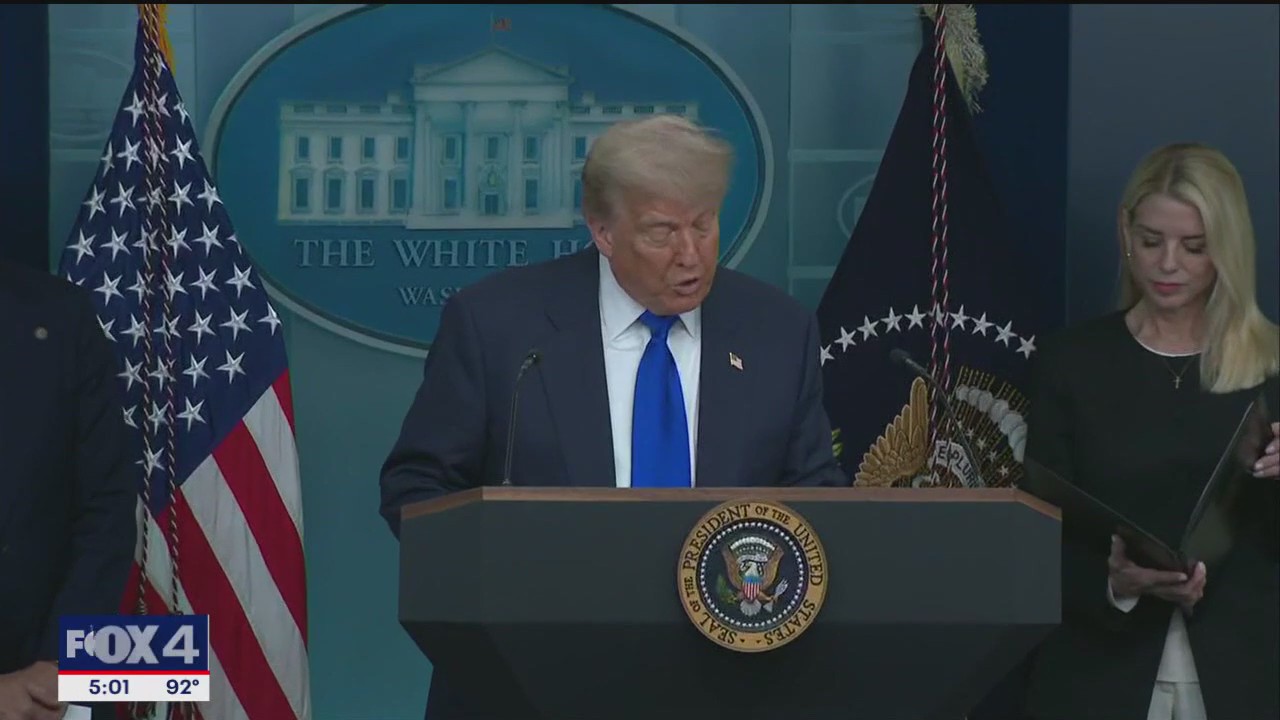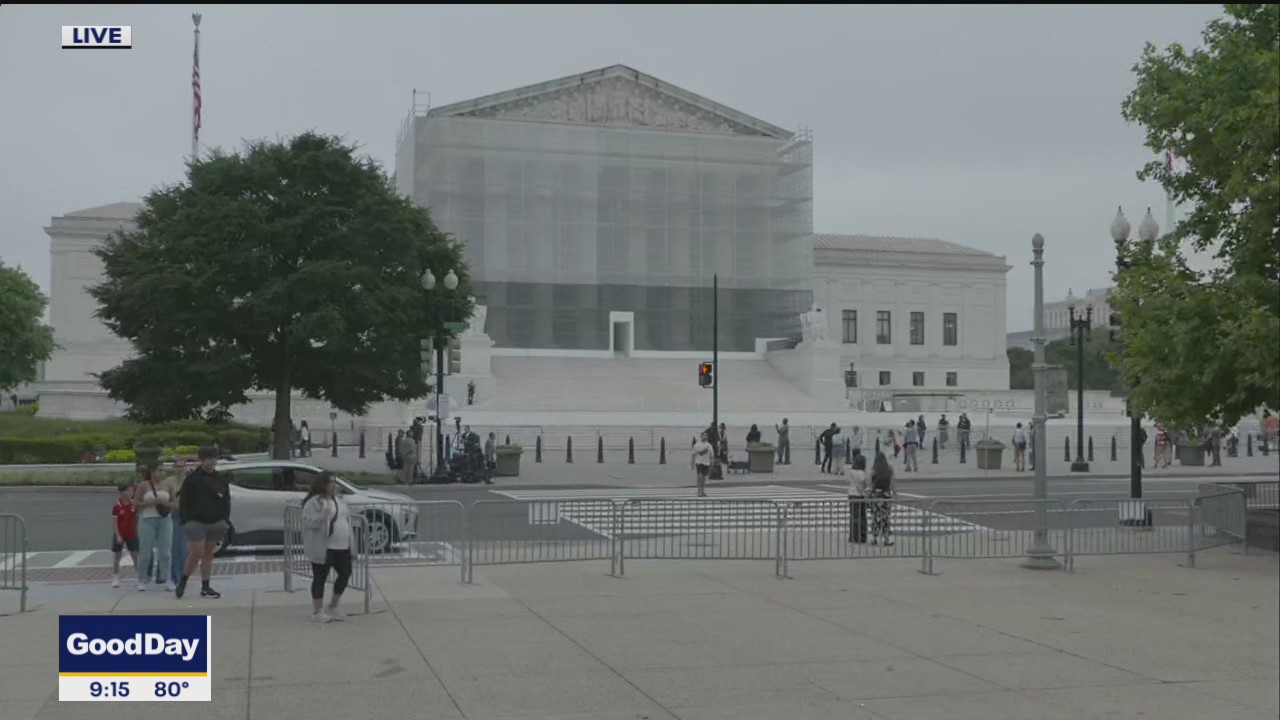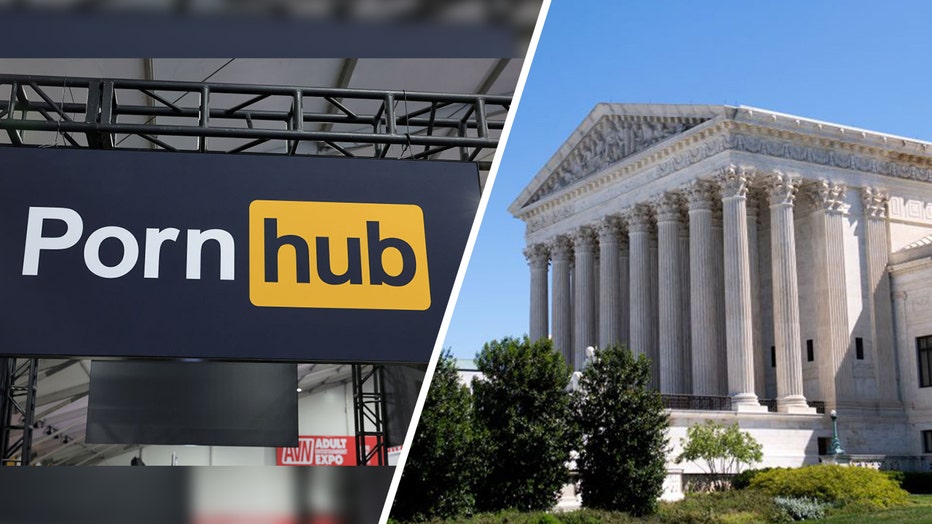Supreme Court upholds Texas law requiring age verification for porn sites

SCOTUS upholds Texas law on porn site age blocking
The Supreme Court sided with Texas over a law requiring pornographic websites to verify the age of users before allowing them to access the sites.
WASHINGTON - The Supreme Court sided with Texas over a law requiring pornographic websites to verify the age of users before allowing them to access the sites.
A group representing the adult entertainment industry, including websites like Pornhub, challenged the law, claiming it violated the First Amendment.
Texas argued that minors are able to get around current age verification requirements too easily.
In a 6-3 ruling, the Supreme Court sided with Texas.
The decision could have an impact on several states that have passed similar legislation.
READ MORE: Supreme Court rules on case involving Trump's birthright citizenship order

SCOTUS birthright citizenship ruling: What it means
In a 6-3 vote, the Supreme Court ruled to limit the power of federal district courts when it comes to issuing nationwide injunctions. It appears President Donald Trump may be able to enforce his executive order denying birthright citizenship. Constitutional law attorney David Coale breaks down the ruling and explains its implications.
Free Speech Coalition v. Paxton ruling
What they're saying:
Writing for the court, Justice Clarence Thomas said age verification is part of a state's authority to prevent children from accessing sexually explicit content.
"Adults have no First Amendment right to avoid age verification, and the statute can readily be understood as an effort to restrict minors’ access," Thomas said. "Any burden experienced by adults is therefore only incidental to the statute’s regulation of activity that is not protected by the First Amendment."
Texas Attorney General Ken Paxton called the decision a major victory Friday morning.
"This is a major victory for children, parents, and the ability of states to protect minors from the damaging effects of online pornography," Paxton said. "Companies have no right to expose children to pornography and must institute reasonable age verification measures. I will continue to enforce the law against any organization that refuses to take the necessary steps to protect minors from explicit materials."

The other side:
In her dissent, Justice Elena Kagan agreed that children should be protected from sexually explicit content, but argued that the rules the court applied to this case were a departure from the review process of similar, previous cases.
"A State may not care much about safeguarding adults’ access to sexually explicit speech; a State may even prefer to curtail those materials for everyone," Kagan said. "Many reasonable people, after all, view the speech at issue here as ugly and harmful for any audience. But the First Amendment protects those sexually explicit materials, for every adult."
The court has ruled on similar issues in the past. In 1996, it struck down parts of a law banning explicit material viewable by kids online. The court ruled against a different federal law aimed at stopping kids from being exposed to porn in 2004 but said less restrictive measures like content filtering are constitutional.
Kagan argues the court should have applied a strict scrutiny review of the law to make sure it is the least restrictive way to achieve the results the state is seeking.
"I would demand Texas show more, to ensure it is not undervaluing the interest in free expression," Kagan wrote.
What's next:
Appellate attorney Chad Ruback said the ruling leaves porn website operators with two choices.
"They can either disable access to everyone in Texas. That means anyone with a cellphone in Texas, anyone with an internet connection in Texas just can't access the website at all. Or alternatively, this age verification requirement to implement the age verification requirement the Texas law requires them to either get a photo ID like a driver's license, passport, that sort of thing, upload it to confirm someone is of a certain age," he said.
Pornhub, one of the world's biggest websites, has already stopped operating in Texas and some other states, citing both technical and privacy problems in complying with the law.
Companies that do not comply with the law could face large fines.
It's not clear if the websites will look to comply with the law or continue to block Texas residents.
Supreme Court Arguments
Dig deeper:
The case went before the Supreme Court in January.
The Free Speech Coalition, which represents the adult websites, called the Texas law overburdensome for adults seeking to access pornography and creates a "chilling effect" for adults who want to access content.
A chilling effect refers to something that discourages a person from exercising their rights or expressing themselves due to the threat of legal action.
The Texas Attorney General's Office argued that its age verification law is not too burdensome for adults looking to access pornography.
The argument was based on a 1968 Supreme Court case, Ginsberg v. New York, in which a store owner argued that age verification was a violation of a minor’s First Amendment rights after the store owner was arrested for selling an adult magazine to a 16-year-old boy on two separate occasions.
The Supreme Court upheld the conviction of Ginsberg under New York’s Harmful to Minors Law.
Texas Age-Verification Law
The backstory:
The Texas Legislature passed House Bill 1181 in June 2023.
The law requires commercial entities that show sexual material to "use reasonable age verification methods […] to verify that an individual attempting to access the material is 18 years of age or older."
The law applies to any website with one-third of content considered obscene for minors.
A federal court in Austin initially kept the state from enforcing the requirement, but the 5th Circuit Court of Appeals lifted the order.
Big picture view:
Age verification laws have been passed in Louisiana, Arkansas, Oklahoma, Kansas, Nebraska, Indiana, Kentucky, Tennessee, Mississippi, Alabama, Georgia, South Carolina, North Carolina, Virginia, Florida, Utah, Idaho and Montana.
The Source: Information in this article comes from briefs filed in Free Speech v. Paxton, Supreme Court hearings and past FOX coverage.

